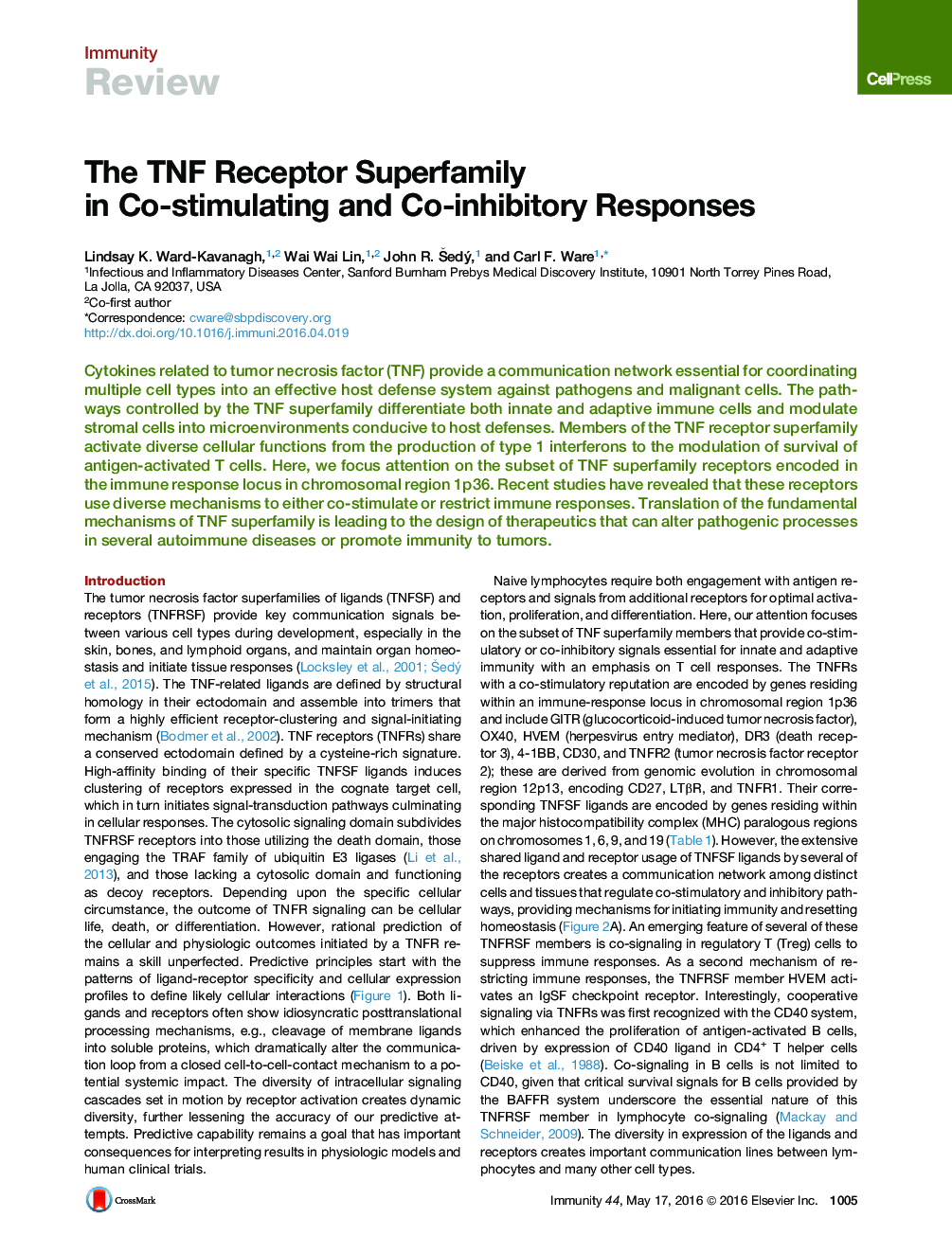| Article ID | Journal | Published Year | Pages | File Type |
|---|---|---|---|---|
| 3352868 | Immunity | 2016 | 15 Pages |
Cytokines related to tumor necrosis factor (TNF) provide a communication network essential for coordinating multiple cell types into an effective host defense system against pathogens and malignant cells. The pathways controlled by the TNF superfamily differentiate both innate and adaptive immune cells and modulate stromal cells into microenvironments conducive to host defenses. Members of the TNF receptor superfamily activate diverse cellular functions from the production of type 1 interferons to the modulation of survival of antigen-activated T cells. Here, we focus attention on the subset of TNF superfamily receptors encoded in the immune response locus in chromosomal region 1p36. Recent studies have revealed that these receptors use diverse mechanisms to either co-stimulate or restrict immune responses. Translation of the fundamental mechanisms of TNF superfamily is leading to the design of therapeutics that can alter pathogenic processes in several autoimmune diseases or promote immunity to tumors.
